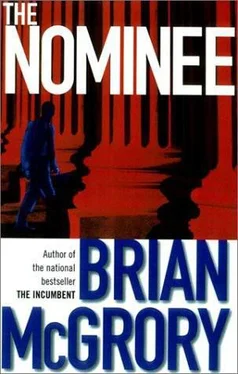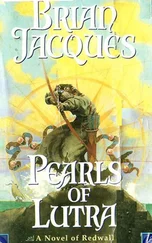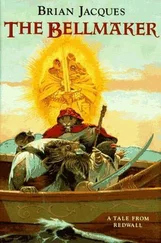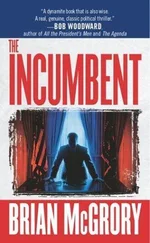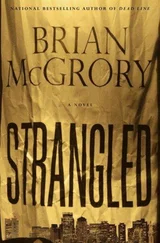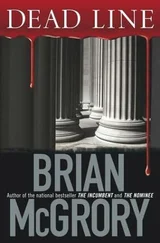“Randolph’s father, Bert, was a great governor and an even better man, a statesmanlike figure. He’s the best politician I’ve ever known, and I’ll admit, he became a good friend.
“When he was shot, when he died, his advisers panicked. They didn’t want to relinquish control of the State House. The consultants didn’t want to lose their cash cow. His son was the heir apparent. But politically, it looked awful that the kid was the lone survivor. He always had a reputation as being soft, living off his famous name rather than making one for himself. And the shooting just fed into the perception. Everyone’s blood was shed at the high school that day but his.”
He again stared down at the floor as he spoke, occasionally looking up and meeting my gaze. I reached quietly into my coat pocket, pulled out the cassette player, flicked it to record, and set it down unobtrusively on the coffee table between us.
“So that very night the governor was killed, they called me out to his house. Lance and his father’s two top aides were there. They fed me a story about how the son tried to protect the governor against the assault, and how it was nothing more than raw luck that he wasn’t killed as well. The kid told me that the shooter aimed the gun right at his face, but when he fired, his clip was empty. After he loaded another one in, he shot himself in the head.”
Fitzgerald shook his head as he was finishing the sentence. When he resumed, he was looking into the far corners of the room, his voice far away, his eyes even farther.
“I knew it was a lie. They knew I knew it was a lie. When I got back here to my office that night, I made a call over to Boston PD, to John Leavitt, who was the head detective back then, and confirmed with him that there was no spent clip. But I put it in print anyway.”
“Why?” I asked.
Fitzgerald suddenly focused on me as if he had forgotten I was there. He said, “Because Bert Randolph was my friend. I didn’t think it right that his only son should have to suffer because, for whatever good or bad reason, he survived this ferocious attack. I wanted to preserve my friend’s family name. And I wanted to make life better for that wonderful widow who lost her husband at far too young an age.”
His gaze headed back to points unknown, and he added in that distinctly distant voice, “I knew it was wrong. But I thought in the back of my mind that it was the most human thing I could do.”
His voice grew louder, but no less distant. “And I wondered, Jack, I wondered, can’t we ever just be human in this business? Must we always lord the truth, like it’s something far greater than any individual or all of us combined. Can’t we extend a common courtesy? Can’t we practice basic human decency? That’s what I was thinking when I did this. Why must we, as journalists, always bask in human weakness, in the foibles of mankind?”
Good questions, all, some of which we had indirectly addressed in our weekly gatherings in this very room. You know the old saying: A plane lands successfully at Logan Airport every nine seconds and we don’t write about it. The one that crashes — or is hijacked — is splashed on the front page. That’s simply the nature of news — something new, something different. It can be an uncaring, unforgiving business.
With Lance Randolph, it wasn’t necessarily news that he survived the attack. But his survival fed into a latent distrust of the man, that he was soft, not valorous, that he might have bolted from harm’s way, even instinctively, and left his father to die. That suspicion could kill his career, much like the gunman killed his father. So he tried to overcome that perception by creating the news that he was in fact a hero. And that’s where he, and Fitzgerald, went awry.
I asked, “So why, after that, did you continue to lie in other stories?”
There was a long pause. He stared at the floor, then looked up at me.
“Jack, I’m an old man trying to make my way in a young man’s business, and the conceited fact of the matter is that it’s not so easy being Robert Fitzgerald anymore. People have high expectations. I have high standards. I like to break news, be interesting, write fresh, and at my age, these tired legs aren’t as fast and sturdy anymore.”
Another pause, then he added, “After I lied once, they had me, and they knew it.” He was gazing downward, again close to tears. The very act of speaking seemed to come as a relief, as if he was unburdening and didn’t want to stop. I resumed my stone silence, not wanting to get in the way. “The ever-unseemly Benjamin Bank, his political adviser, held it over me that I had lied once, and pushed and prodded me to do it again. So I did, with the conviction rates. And then they began feeding me news, unveiling public proposals to me, giving me things a day ahead of everyone else. I became an addict, and in exchange for the news breaks, I treated them with kid gloves, and on occasions, when they needed it, I’d contort the facts.”
He looked up suddenly from the rug, looked directly into my eyes. He said, “I tried to do the right thing. And in the end, it led to nothing but a pack of disgusting lies.”
I asked, in a sympathetic voice, “What about Commissioner Leavitt?”
He chuckled, but it was a rueful little snicker, not anything funny. “He was there, at the school, right after it happened. He was the head detective then, a superintendent. Like I said, he knew there was no extra clip on the ground. He knew that Lance Randolph’s story was an utter sham. So he blackmailed me. When he got into trouble on that botched drug raid, he called me and struck a deal. ‘What harm,’ he asked me, ‘is there in blaming a dead kid for a raid gone inexplicably bad.’”
Here, I couldn’t help myself. “The harm,” I replied, “is when that dead kid’s mother sticks a revolver in her mouth and blows her brains out because she knew the newspaper and the cops were lying about her only child, but there wasn’t a damned thing she could do about it.”
He looked passively at me and nodded. “Exactly as I’ve always told you, Jack. That every word we write will have consequences for people we don’t even know and often can’t even imagine. I lost sight of that one true thing.”
I sat there in the dim light, exhausted. Fitzgerald leaned against the back of his chair and began rocking, partly in an attempt, I think, to soothe himself, partly just out of raw relief. Neither of us spoke for several long moments, until I said, “Robert, you know I have to go into print with this.”
He replied, “I know you do. And for the record, Jack”—here, a slight smile crossed his lips—“I know it’s nothing personal. The truth is just what we do, or are supposed to do.”
More silence. If he was going to kill me during this visit, if he planned to pull a weapon from his pants or a desk drawer and shoot me in the head as Paul Ellis had been shot when he had the same information that I had now, then this would be just about the time. But he continued to rock, his head back, his hands in his lap, his eyes looking down at the floor.
I asked, “Robert, did you kill Paul?”
He didn’t seem surprised by the question. He didn’t even appear offended.
“No,” he answered, still rocking, still gazing at the floor.
“Did you kill John Cutter?”
Again, no expression of surprise, not even over the assertion that John Cutter had been murdered rather than died of a heart attack. He shook his head and simply said, “No.”
He was lying. Or at least I thought he was. Or maybe I wasn’t really sure.
At that precise moment, we heard the door open downstairs, the whoosh of outside air coming in, then the sound of someone padding up the wooden steps.
Читать дальше
